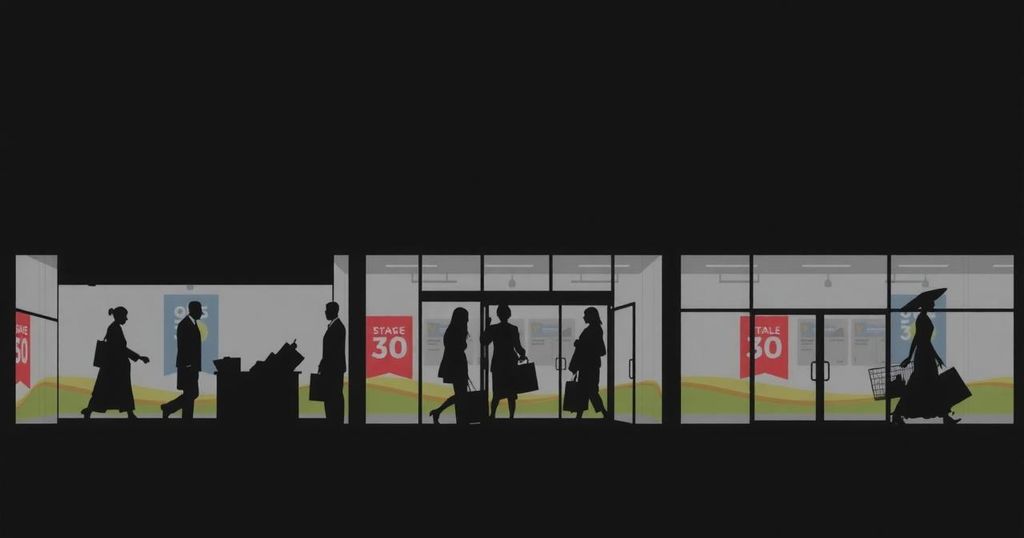Top retailers in Zimbabwe are warning of potential store closures due to a government-imposed official exchange rate they deem excessively high. The new gold-backed currency, ZiG, is faltering, having decreased nearly 80% in value on the black market. Retailers argue that compliance with this rate makes them less competitive against informal shops. Without intervention from the government, the Retailers Association of Zimbabwe warns that many businesses may close.
Zimbabwean retailers have issued a grave warning regarding the potential closure of their stores if the government maintains an exchange rate that they consider to be excessively high, which undermines their competitiveness. The newly introduced gold-backed currency, the Zimbabwe Gold (ZiG), is facing significant depreciation, having lost nearly 80% of its value against the black market rate, which currently stands between 20 and 26 ZiG to one U.S. dollar. Under government regulations, it is mandatory for formal retailers to base their pricing on the official exchange rate of 14.8 ZiG to one dollar, with noncompliance resulting in penalties. Major retailers such as OK Zimbabwe, Spar, and TM Supermarkets, which is affiliated with South Africa’s Pick N Pay, have raised concerns that this official rate is inflating their prices in comparison to informal vendors, thus alienating customers. The Retailers Association of Zimbabwe (RAZ) has expressed concerns in a letter to the Ministry of Finance stating, “The situation is clearly untenable and will lead to company closures if authorities do not intervene with policy measures to protect the formal retail sector.” Additionally, while retailers are obliged to comply with the official rate, their suppliers are engaged in pricing based on black market rates, compelling retailers to increase their prices accordingly. Retailers strongly advocate for the implementation of a pricing model that accurately reflects real-time fluctuations in the market exchange rate as a means to ensure competitiveness and manage operational costs. Meanwhile, the treasury has yet to respond to these pressing concerns. Economists note that the ZiG represents Zimbabwe’s sixth attempt to establish a stable currency within a 15-year span, and its rapid devaluation highlights a pervasive lack of public confidence in this new financial instrument.
The economic landscape in Zimbabwe has been fraught with challenges, particularly regarding currency stability and exchange rates. The introduction of the Zimbabwe Gold (ZiG) aims to create a more stable monetary environment backed by gold reserves. However, the recent devaluation against the black market highlights the ongoing struggles with inflation and public confidence in the fiscal policies governing the new currency. Retailers, facing increased operational costs due to the mandate to adhere to official rates while suppliers charge more based on unauthorized market rates, express serious concerns about their ability to sustain business operations under the current economic pressure.
Retailers in Zimbabwe are facing an imminent threat to their operations due to government-mandated pricing based on an official exchange rate, which they consider overvalued. With the ZiG collapsing against black market rates, there is an urgent demand for policy reform to allow competitive pricing reflective of actual market conditions. Failure to address these challenges may lead to significant store closures, exacerbating the economic difficulties already faced by the region.
Original Source: www.investing.com






